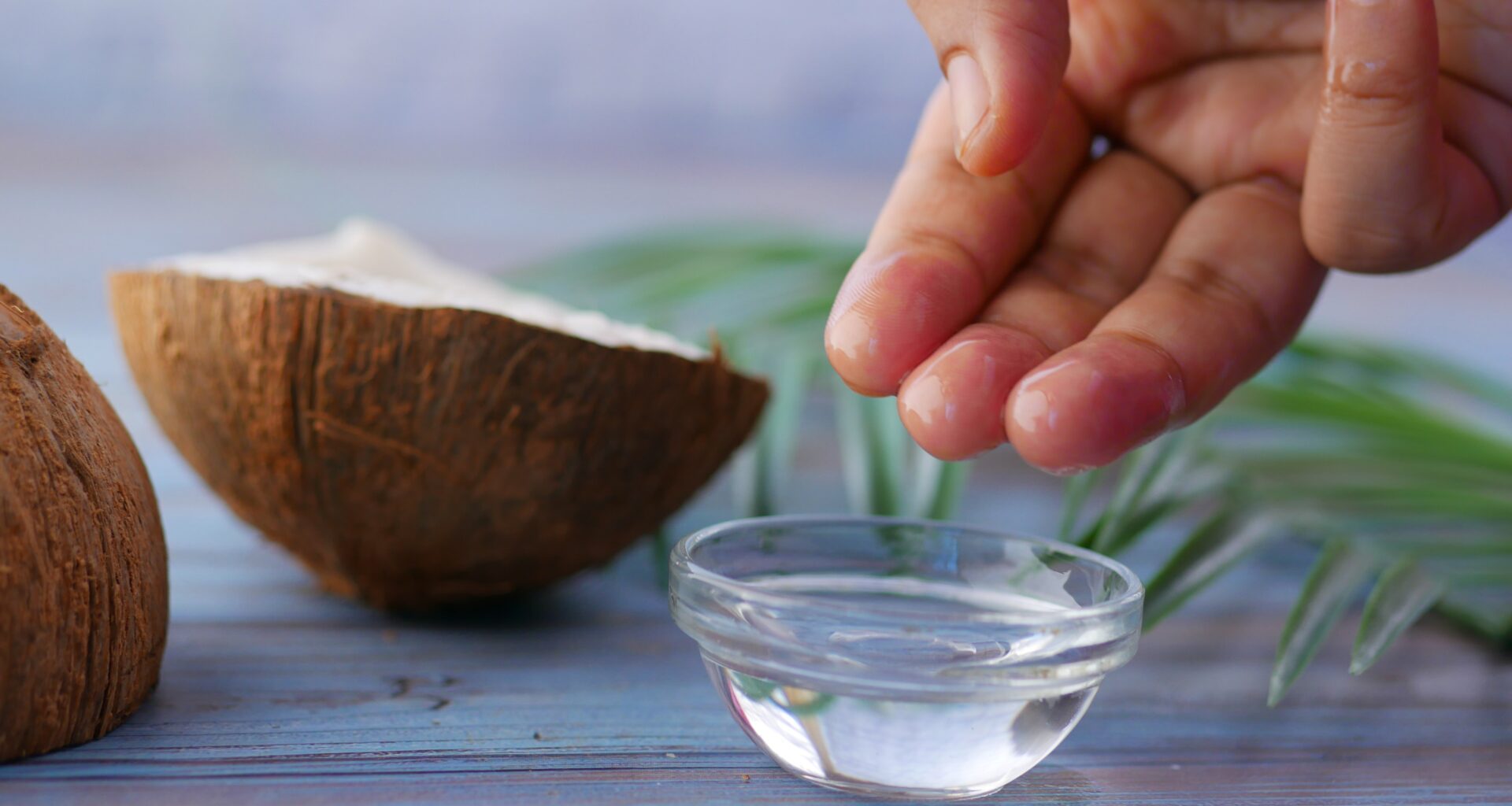Before you begin using coconut oil to tan your skin, you should exfoliate your skin thoroughly. This is to avoid developing sunburns. You can also use coconut oil as a substitute for sunscreen. After you have exfoliated your skin, you can apply non-comedogenic coconut oil. But, does coconut oil help you tan? Read here.
Exfoliating Your Skin Before Tanning
Exfoliating your skin before using coconut oil to tan is essential to achieve a healthy and even tan. The UV radiation in sunlight penetrates deeper layers of the skin and triggers the production of melanin, the pigment responsible for skin darkening. Tanning oil made from virgin coconut oil provides better UV protection and will help you achieve a beautiful tan faster. However, you should always wear sunscreen and moisturizer while tanning and use a moisturizer every day.
Using baby oil is another way to exfoliate your skin before using coconut oil for tanning. This will remove dead skin cells and help prevent your skin from picking up the self-tanner. You can use a washcloth or loofah to apply the oil and exfoliate it.
Using a natural oil-based exfoliator before using coconut oil for tanning is a great way to prepare your skin for the process and won’t leave your skin feeling dry or rough. If you’re unsure how to exfoliate, try a scrub made from oatmeal, a natural exfoliator that is mild and suitable for sensitive skin. If you have sensitive skin, try a sugar or oatmeal scrub. Then, apply a light moisturizer.
Preparing Your Skin With Non-Comedogenic Coconut Oil
Coconut oil has several benefits, including the ability to protect your skin from harmful UV rays. It contains stable saturated fats and helps your skin absorb vitamin D quickly. It also replenishes the moisture your skin loses and brings back its natural shine. It can also be used as an exfoliant to prepare your skin for tanning.
Coconut oil has antimicrobial and anti-inflammatory properties. It contains Lauric and Capric acids, which help prevent and heal skin infections. The fatty acids in coconut oil also act as disinfectants and antibacterial agents. Even though it doesn’t provide significant UV protection, it can reduce irritation and abrasions. Additionally, it creates a layer on top of your skin.
The American Academy of Dermatology recommends using sunscreen with an SPF of 30 or higher. Choose a sunscreen that protects against both UVB and UVA rays. Usually, products marked with SPF 30 have broad-spectrum protection, which means they block 97 percent of UVB rays. Higher SPF products block slightly more rays. You don’t want to use coconut oil to prevent sunburn, as it won’t provide the same protection.
Sunburns That Can Occur While Tanning With Coconut Oil
Coconut oil has many benefits, including antimicrobial and anti-inflammatory properties. It is easily available and is free of harmful chemicals like paraben. In addition, it is highly hydrating and helps to prevent the onset of sunburn. While it does not provide significant UV protection, it does create a protective layer over the skin.
Coconut oil speeds up the tanning process and may prevent sunburns, but it is not a long-term UV protection solution. The American Academy of Dermatology recommends using sunscreen with SPF 30 or higher, which will block 97 percent of harmful UV rays. Use sunscreen for at least 15 minutes before exposing your skin to the sun, and reapply every two hours. If you are going to be in the sun for several hours, you should wear protective clothing such as a wide-brimmed hat and sunglasses.
Sunlight damage can cause skin breakdown, which can lead to fungus and bacteria. Fortunately, coconut oil contains a substance called MCT, which has antibacterial, antifungal, and antiviral properties. Coconut oil can be applied to the affected area or your entire body for maximum benefits.
Using Non-Comedogenic Coconut Oil As A Substitute For Sunscreen
Coconut oil can be used as a sunscreen substitute for people with sensitive skin and is a great option for acne-prone skin. It can help reduce redness and soothe inflamed skin, and it can also rehydrate the skin. Coconut oil can only provide minimal sun protection, but it can be combined with other ingredients such as red raspberry seed extract or zinc oxide for more potent protection. Additionally, it can help with wound healing, and it contains antimicrobial properties.
Coconut oil is a moderately comedogenic oil, which means it won’t clog your pores or cause acne. This means that you can use it as a sunscreen and moisturizer without worrying about clogging your pores. It’s also a great choice for those who suffer from blackheads or whiteheads, as the lauric acid in coconut oil has antimicrobial properties.
Coconut oil is an effective moisturizer and exfoliant, and it can also help minimize fine lines and wrinkles. You should avoid using pure coconut oil as it can clog your pores and cause breakouts. However, it can be an excellent cleanser and makeup remover, too.
Also Read: What Happens If You Leave a Self Tanner for Too Long?
Lastly
Coconut oil is a great way to add moisture to your skin while protecting it from the sun’s harmful rays. However, you should remember that not all coconut oils are created equally. There are many different types of coconut oil, including organic, refined, virgin, and extra-virgin. In addition, they can be extracted in different ways.








